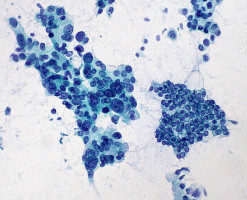
Immodulon Therapeutics Ltd have announced the latest five year survival results in patients with metastatic melanoma receiving IMM-101 (a bacterially derived systemic immunomodulator administered intradermally).
The findings were presented by Prof Angus Dalgleish, Principal Investigator of one of the trials, at ESMO Symposium on Immuno-Oncology.
Data released by Immodulon in January 2015 from a randomised, Phase II study of IMM-101 with gemcitabine in patients with advanced metastatic pancreatic cancer, showed significant improvements in overall survival (OS) and progression free survival (PFS) compared to gemcitabine alone.
As such, IMM-101 was the first immunotherapy candidate to show a synergistic effect with chemotherapy when given first line in metastatic pancreatic cancer patients.
The latest results to be presented at ESMO’s Symposium indicate that IMM-101 may have the potential to be effective in tumour types other than pancreatic cancer.
Eighteen patients completed the original Phase I trial of IMM-101 in 2010 and, following a period of receiving IMM-101 on a named patient basis, ten patients entered an open-label, long-term follow-up study between February and June 2012.
Six of these patients, all with Stage IV disease when entering the long-term follow-up study, are alive and still being treated with IMM-101.
“These results are hugely encouraging,” said Prof Angus Dalgleish, Principal Investigator of the long- term follow-up study.
“They suggest that IMM-101 could be an effective first line treatment option for different types of metastatic cancers, which is a considerable step forward. I am particularly interested in the complete response seen in the patient who received IMM-101 and then the anti-CTLA-4 antibody, ipilumumab, as this supports a view I have held for some time; that priming with an immunomodulator such as IMM-101 followed by administration of a checkpoint inhibitor may be a particularly efficacious combination. It certainly merits further research in a controlled setting.”
Dr Kevin Bilyard, Immodulon Therapeutics CEO, commented: “Although the checkpoint inhibitors have improved the outlook for patients with various malignancies, including metastatic melanoma, there remains a need for cancer treatments which contribute to extended survival without additional toxicity. Results from this small study of patients with advanced melanoma, together with those from the previously reported IMAGE 1 randomised phase II study in advanced pancreatic cancer, suggest IMM- 101 may offer that potential.”
IMM-101 has been granted Orphan Drug Designation in the US and EU for the treatment of pancreatic cancer and is expected to enter Phase III clinical trials in 2016.
Source: Immodulon Therapeutics Ltd